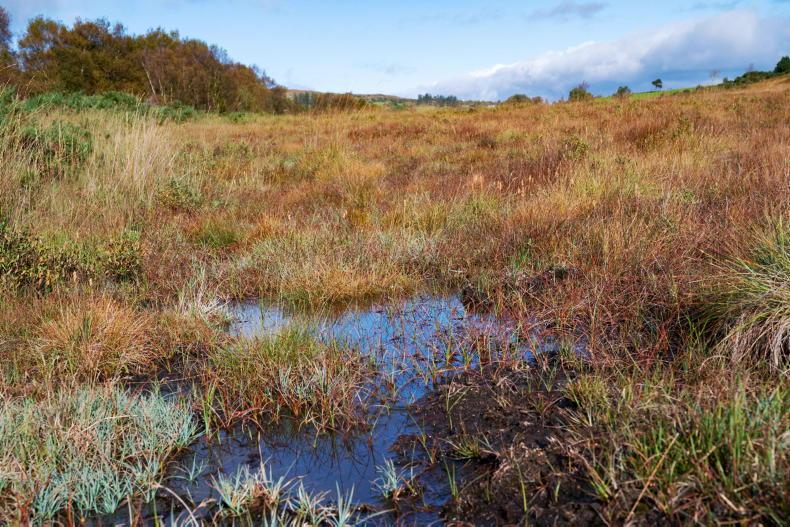The Irish Natura and Hill Farmers Association (INHFA) has called for clarity from political parties on a possible carbon tax for peat soils.
The INHFA is concerned that commitments given on the Nature Restoration Law (NRL) may be undermined through the introduction of such a carbon tax.
The association said that in the development of the law, “commitments were given to farmers on drained peat soils and those farming our uplands that any farmer engagement will be on a voluntary basis”.
INHFA president Vincent Roddy said many Dáil deputies endorsed a motion that stated that any actions would be on a voluntary basis, while also ensuring that these lands can continue to be defined as an agricultural area under CAP programmes.
“While these commitments are critical, their intention could be undermined through the introduction of a carbon tax on these lands,” he said.
“We have seen various assessments on what level of carbon has been emitted from drained peatlands and the wet and dry heaths that covers most of our hills.
"These figures have ranged from 10/tonne/ha/year up to 30tonnes/ha/year and it is our understanding that ongoing research by Teagasc will provide more definite figures on these areas in the coming 18 months.”
Research
The INHFA said that even at 10t/ha, any carbon tax applied here would be devastating for farmers, as the current carbon tax rate for 2024 is €56/t of carbon dioxide, with this set to increase to €100/t by 2030.
Roddy said that farmers would be forced to consider rewetting or other restoration options as they could not afford such a punitive tax.
He called on all political parties to give “rock solid commitments” that if in government they will not impose any carbon tax on lands.
“For our politicians and the State to ensure the voluntary commitments given around the NRL are honoured, that all lands subject to the law continue to be defined as agricultural areas and that no attempt will be made to coerce farmers through a carbon land tax.”






 This is a subscriber-only article
This is a subscriber-only article










SHARING OPTIONS: